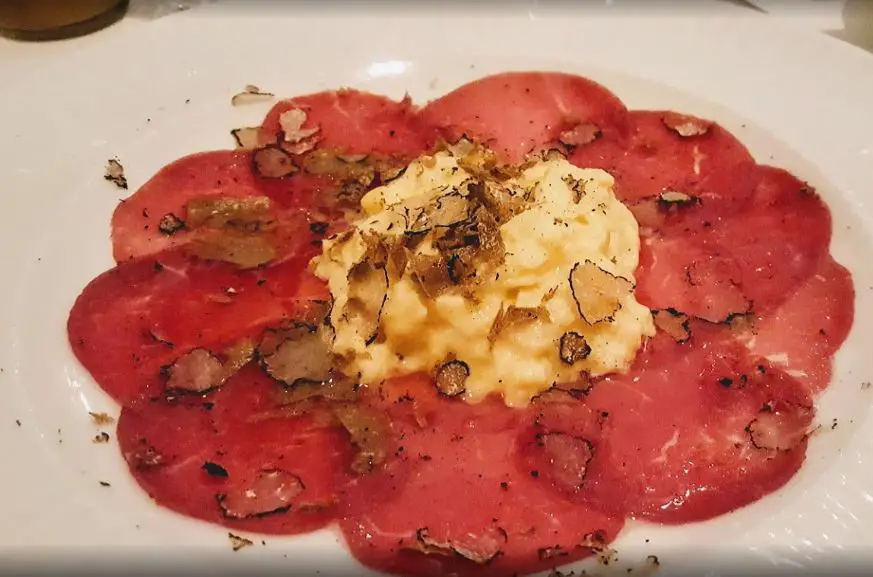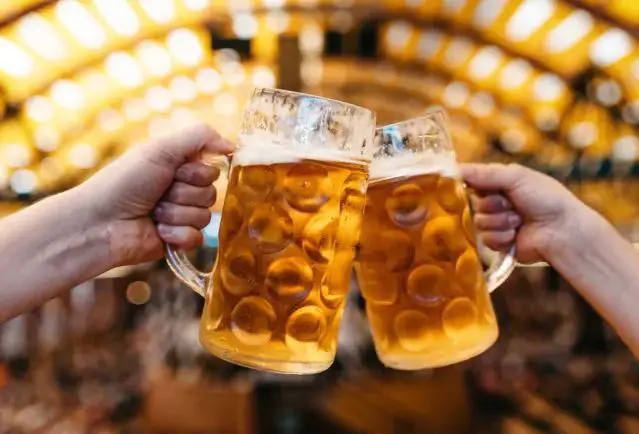How can I experience a traditional German beer hall?
Post ByAdequate Travel
Summary
Head to Germany to experience a traditional beer hall, complete with delicious food, great beer, and a lively atmosphere. Learn about the best beer halls in Germany, and the types of Bavarian beer and food you can experience while there.
Travellers can find valuable travel information for tourists, such as local customs, must-see attractions, and dining recommendations, to make the most of their trip.
Experiencing a traditional German beer hall is a great way to immerse yourself in German culture, enjoy the local cuisine, and discover the true essence of German beer traditions. To help you plan your visit, here is a detailed explanation, including headings and examples.1. Research German beer halls: Begin by researching well-known beer halls in Germany. Some of the most famous ones include Hofbräuhaus in Munich, Augustiner-Keller in Munich, and Paulaner am Nockherberg in Munich. These beer halls have a long history, offer a lively atmosphere, and remain popular among locals and tourists alike.2. Tradition and atmosphere: Traditional German beer halls are known for their unique atmosphere, where locals gather to enjoy good company, hearty food, and, of course, beer. They often feature long wooden tables, Bavarian beer garden-style benches, and charming decorations that reflect German heritage.3. Beer selection: German beer halls typically offer an extensive selection of beers, including traditional and regional varieties. Some popular options are Märzen, Pilsner, Weissbier (wheat beer), Bock, and Dunkel (dark beer). These beer halls often have their own brewery or serve local brews, which are renowned for their quality and adherence to the German beer purity law, "Reinheitsgebot."4. Food specialties: German beer halls serve delicious traditional dishes designed to accompany the beer. Some classic food options you should try include: a. Pretzels (Brezeln): Soft, doughy pretzels with a crispy exterior are a staple in beer halls. They can be plain or salted, and you can dip them in mustard or pair them with cheese. b. Sausages (Wurst): German sausages are incredibly diverse and flavorful. You will find bratwurst, weisswurst, and currywurst, among others. They are often served with sauerkraut, mustard, and bread. c. Pork knuckle (Schweinshaxe): This Bavarian specialty is a roasted pork knuckle with a crispy skin and tender meat. It's usually accompanied by sauerkraut and potatoes. d. Sauerkraut (Sauerkrat): A fermented cabbage dish often served as a side, providing a tangy and crunchy complement to the rich flavors of the beer and meat.5. Live music and entertainment: Many German beer halls feature live music, especially in the evenings and on weekends. Traditional Bavarian music, including oompah bands, often creates a festive and lively atmosphere, with people singing along, clinking their beer mugs, and swaying to the rhythm.6. Plan your visit: Once you have selected a beer hall to visit, consider making a reservation, particularly during peak times or for larger groups. Arriving early can also help secure a good spot, as these places can get crowded, especially during festivals such as Oktoberfest.7. Engage with locals: Interacting with locals can enhance your experience. Don't hesitate to strike up conversations with the people sitting next to you, as they can share stories, recommendations, and insights into the German beer culture.Remember, the key to experiencing a traditional German beer hall is to relax, enjoy the ambience, savor the food and, of course, delight in the plethora of beer options available. Prost! (Cheers!)
Experiencing a traditional German beer hall is a great way to immerse yourself in German culture, enjoy the local cuisine, and discover the true essence of German beer traditions. To help you plan your visit, here is a detailed explanation, including headings and examples.1. Research German beer halls: Begin by researching well-known beer halls in Germany. Some of the most famous ones include Hofbräuhaus in Munich, Augustiner-Keller in Munich, and Paulaner am Nockherberg in Munich. These beer halls have a long history, offer a lively atmosphere, and remain popular among locals and tourists alike.2. Tradition and atmosphere: Traditional German beer halls are known for their unique atmosphere, where locals gather to enjoy good company, hearty food, and, of course, beer. They often feature long wooden tables, Bavarian beer garden-style benches, and charming decorations that reflect German heritage.3. Beer selection: German beer halls typically offer an extensive selection of beers, including traditional and regional varieties. Some popular options are Märzen, Pilsner, Weissbier (wheat beer), Bock, and Dunkel (dark beer). These beer halls often have their own brewery or serve local brews, which are renowned for their quality and adherence to the German beer purity law, "Reinheitsgebot."4. Food specialties: German beer halls serve delicious traditional dishes designed to accompany the beer. Some classic food options you should try include: a. Pretzels (Brezeln): Soft, doughy pretzels with a crispy exterior are a staple in beer halls. They can be plain or salted, and you can dip them in mustard or pair them with cheese. b. Sausages (Wurst): German sausages are incredibly diverse and flavorful. You will find bratwurst, weisswurst, and currywurst, among others. They are often served with sauerkraut, mustard, and bread. c. Pork knuckle (Schweinshaxe): This Bavarian specialty is a roasted pork knuckle with a crispy skin and tender meat. It's usually accompanied by sauerkraut and potatoes. d. Sauerkraut (Sauerkrat): A fermented cabbage dish often served as a side, providing a tangy and crunchy complement to the rich flavors of the beer and meat.5. Live music and entertainment: Many German beer halls feature live music, especially in the evenings and on weekends. Traditional Bavarian music, including oompah bands, often creates a festive and lively atmosphere, with people singing along, clinking their beer mugs, and swaying to the rhythm.6. Plan your visit: Once you have selected a beer hall to visit, consider making a reservation, particularly during peak times or for larger groups. Arriving early can also help secure a good spot, as these places can get crowded, especially during festivals such as Oktoberfest.7. Engage with locals: Interacting with locals can enhance your experience. Don't hesitate to strike up conversations with the people sitting next to you, as they can share stories, recommendations, and insights into the German beer culture.Remember, the key to experiencing a traditional German beer hall is to relax, enjoy the ambience, savor the food and, of course, delight in the plethora of beer options available. Prost! (Cheers!)
Suggested Questions
- Kloster Bronnbach, Wertheim: Horror Story, History & Paranomial Activities
- Schloss Favorite, Rastatt: Horror Story, History & Paranomial Activities
- Frauenkirche, Dresden: Horror Story, History & Paranomial Activities
- Teufelsberg, Berlin: Horror Story, History & Paranomial Activities
- Schloss Friedrichstein, Bad Wildungen: Horror Story, History & Paranomial Activities
- Ehrenbreitstein Fortress, Koblenz: Horror Story, History & Paranomial Activities











